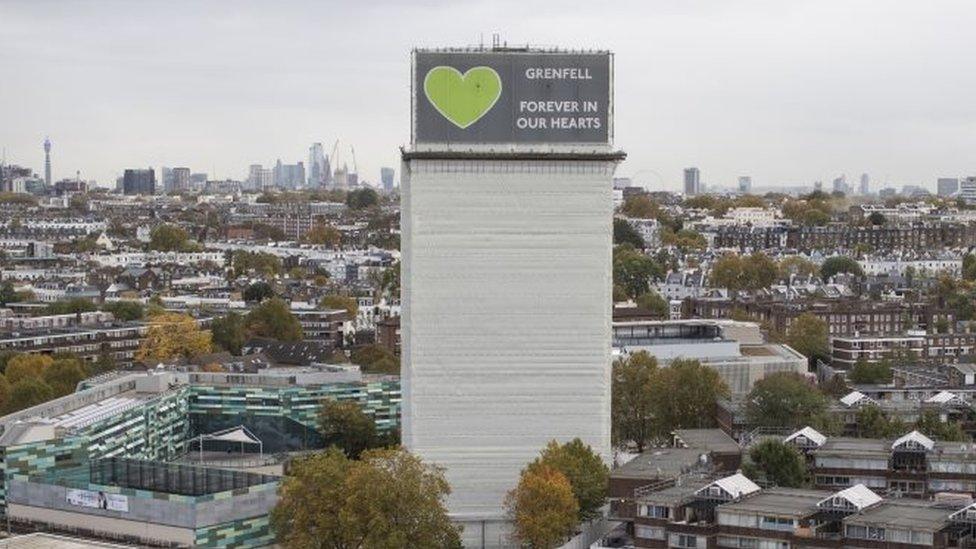Grenfell Tower inquiry: Block management 'was a mini-mafia'
- Published
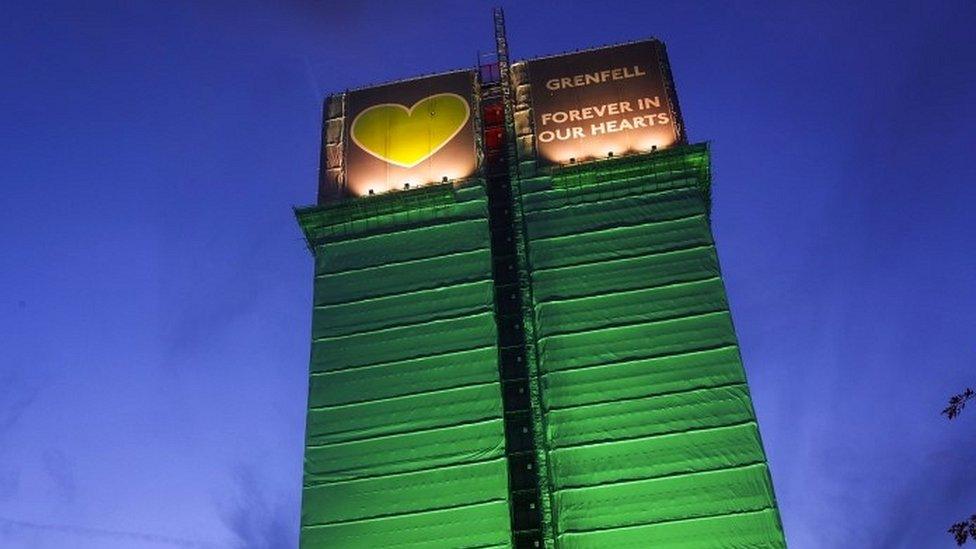
Edward Daffarn described Grenfell Tower's management as a "mini-mafia"
A Grenfell resident who predicted a "catastrophic event" would happen at the tower has defended his description of its management as a "mini-mafia".
Edward Daffarn and another resident repeatedly attacked the Kensington and Chelsea Tenant Management Organisation (KCTMO) in a blog.
Mr Daffarn told a public inquiry his description of the organisation was not "glib, shoot from the hip expressions".
Seventy-two people died in the Grenfell fire on 14 June 2017.
Giving evidence at the inquiry into the disaster, Mr Daffarn said he had "spent a long, long time thinking how to describe this organisation" but he "wouldn't change a single word of it.
He added felt like residents of the tower were being "abused" by the KCTMO.
The year before the fire, Mr Daffarn's blog, which he wrote with Francis O'Connor, said:
"It is a truly terrifying thought but the Grenfell Action Group firmly believe that only a catastrophic event will expose the ineptitude and incompetence of our landlord, the KCTMO, and bring an end to the dangerous living conditions and neglect of health and safety legislation that they inflict upon their tenants and leaseholders."
Mr Daffarn fought a campaign against the KCTMO which had been set up as an "arm's length" organisation to manage council property on behalf of the Royal Borough of Kensington and Chelsea.
He was a bitter critic of the organisation in the years before the refurbishment of the building and during the work.
'Extremely serious consequences'
A key complaint raised by Edward Daffarn in the blog related to concerns that contractors were parking in emergency bays at the base of the tower, preventing fire service vehicles from getting access in the event of a blaze.
Mr Daffarn wrote to project managers and the KCTMO that the planned closure of a car park for work on the tower would make the problem worse.
He was told the work would have no impact on emergency access, but he was not reassured because vehicles continued to take up the emergency bays - he felt, with management approval.
He emailed London Fire Brigade (LFB) in March 2014 warning that "if there was a major fire in Grenfell Tower and fire brigade access ever became an issue... we would use the evidence recorded on our blog and in extensive email correspondence to ensure that those in charge at the TMO (Tenant Management Organisation) would face extremely serious consequences".
The concerns do not appear to have been resolved at the time, according to today's evidence so far.
However, the inquiry has previously found that the first fire engines called to the tower were able to park close to the main entrance and get access to water mains.
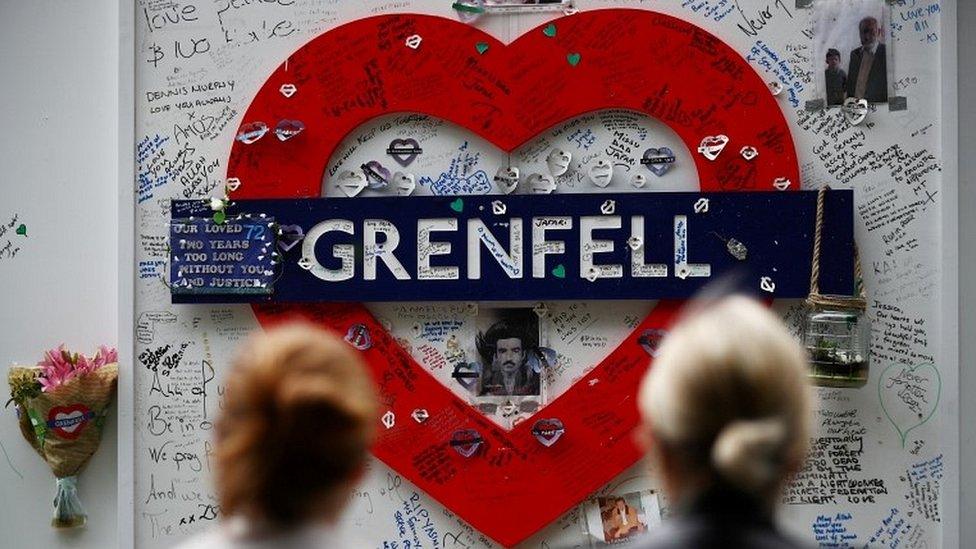
Seventy-two people died in the Grenfell Tower fire on 14 June 2017
Another issue raised by Mr Daffarn centred on a power surge at the tower in May 2013.
In the email to LFB he said: "We believe that the TMO and the council have never acknowledged the possible consequences of this catastrophic power surge and its associated fire risk.
"We believe the TMO must value our lives so little that something so serious can just be covered up and never acknowledged as happening."
The cause of the 2017 fire was an electrical fault behind a fridge, although the inquiry has not been able to explain it.
The residents were also alarmed by the findings of a fire risk assessment which they obtained after repeated emails.
The council and its tenant management organisation will give evidence in coming weeks.
'Challenging meetings'
Edward Daffarn was accused of being "disruptive" and "aggressive" at meetings held by KCTMO during consultation with residents about the refurbishment of Grenfell Tower.
In an email, the local councillor, Judith Blakeman, said "continuing to give these people so much access to put their views is unhelpful as it gives them greater legitimacy".
Mr Daffarn disputed being disruptive but accepted he had a difficult relationship with the councillor.
In a closing comment, Mr Daffarn said the building's management "didn't treat us with respect or humanity or empathy and if they had done, we wouldn't be here now".
The inquiry continues.
- Published20 April 2021
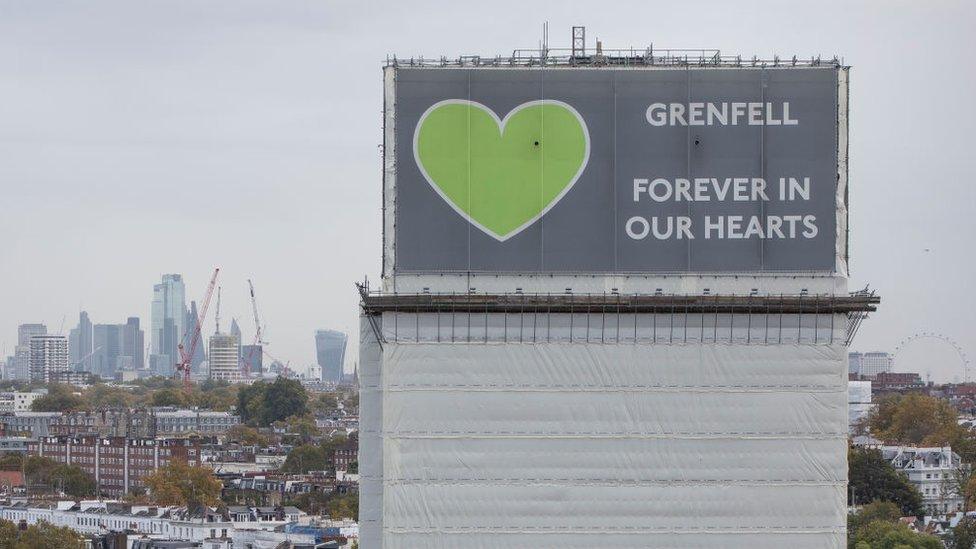
- Published20 April 2021
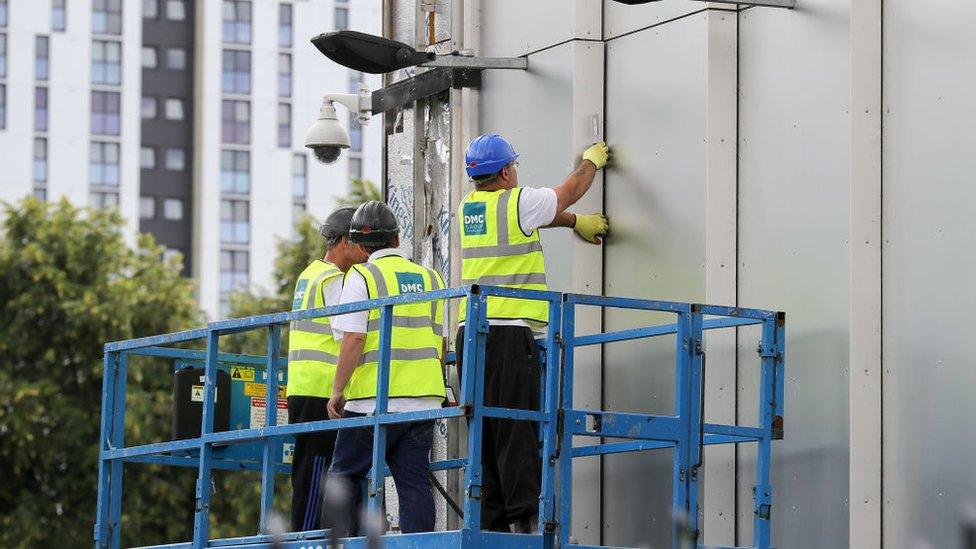
- Published29 March 2021
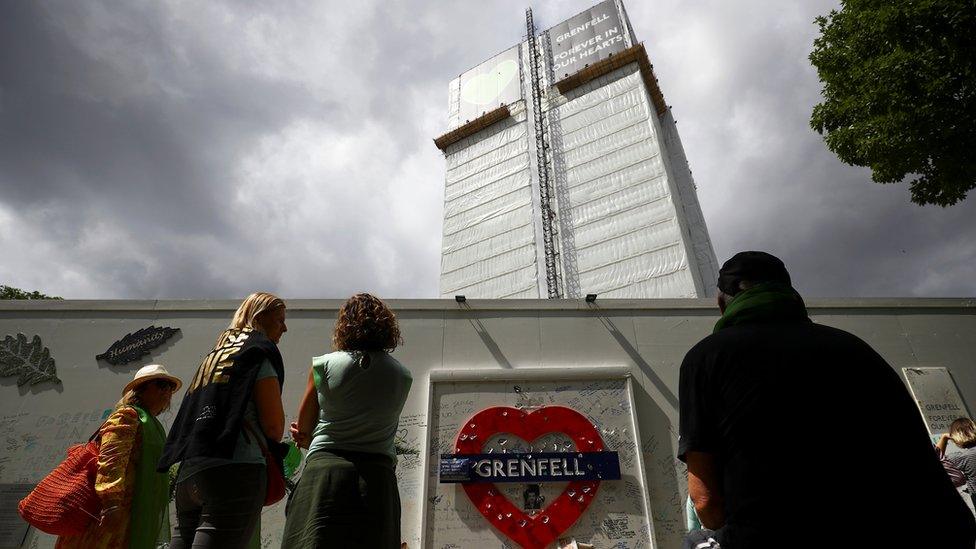
- Published23 March 2021
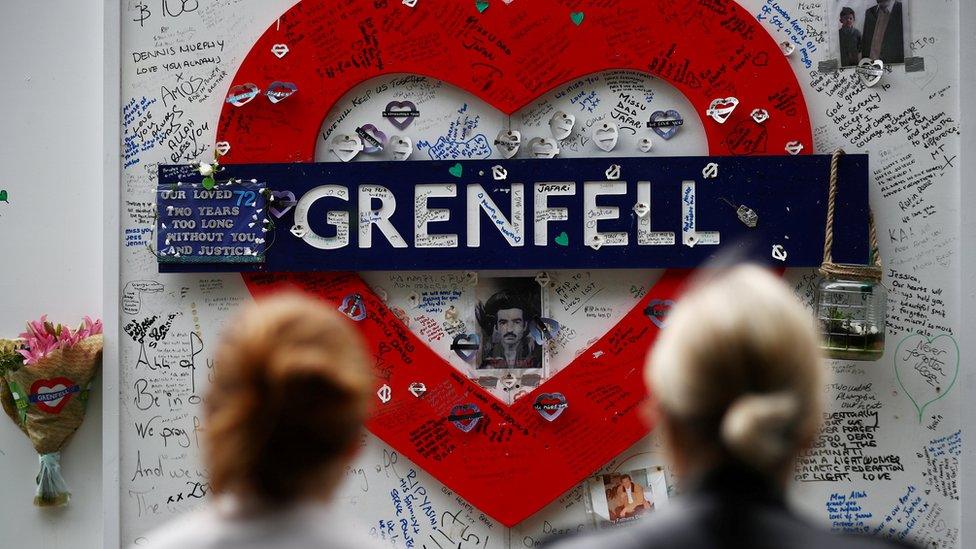
- Published10 March 2021
